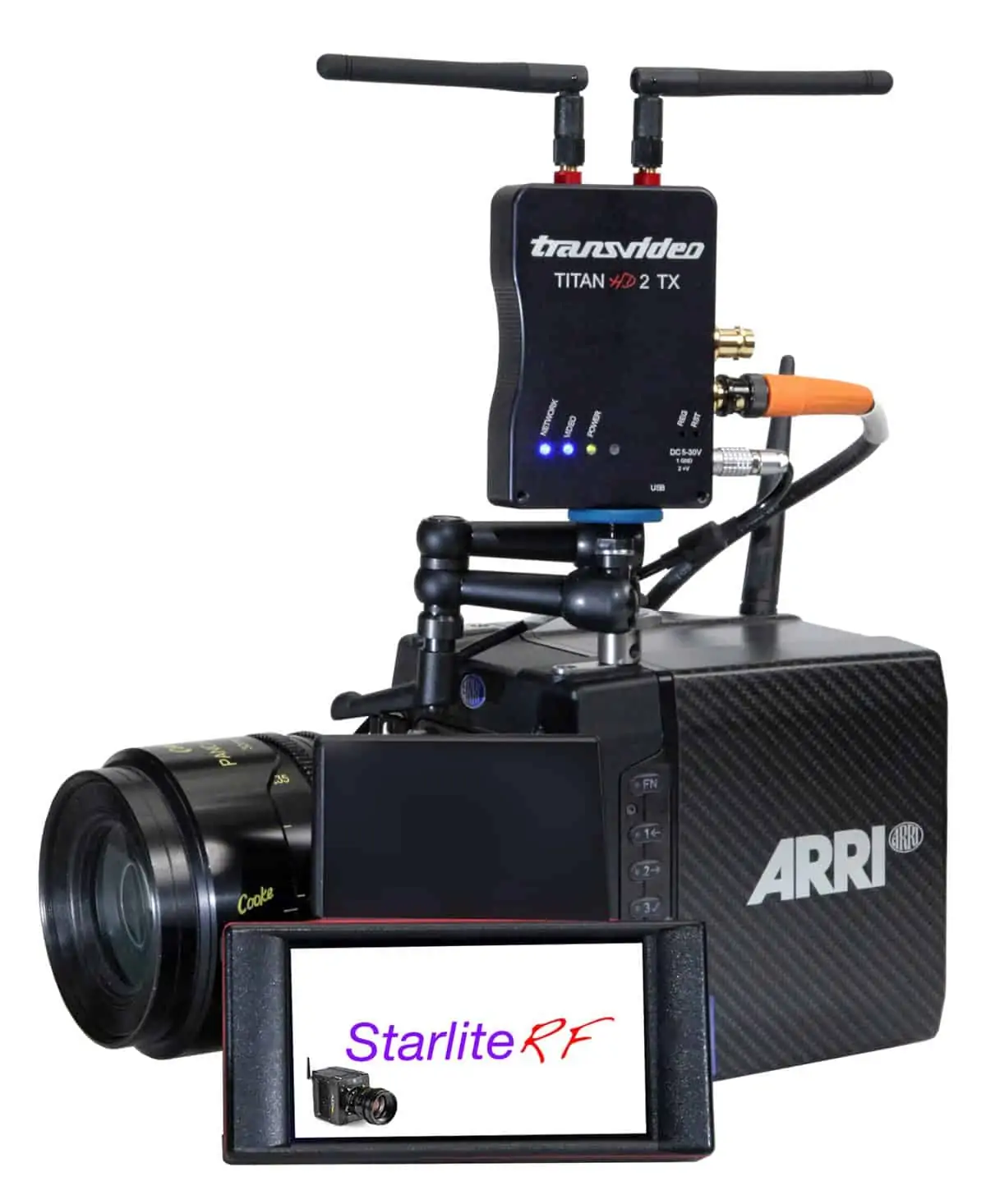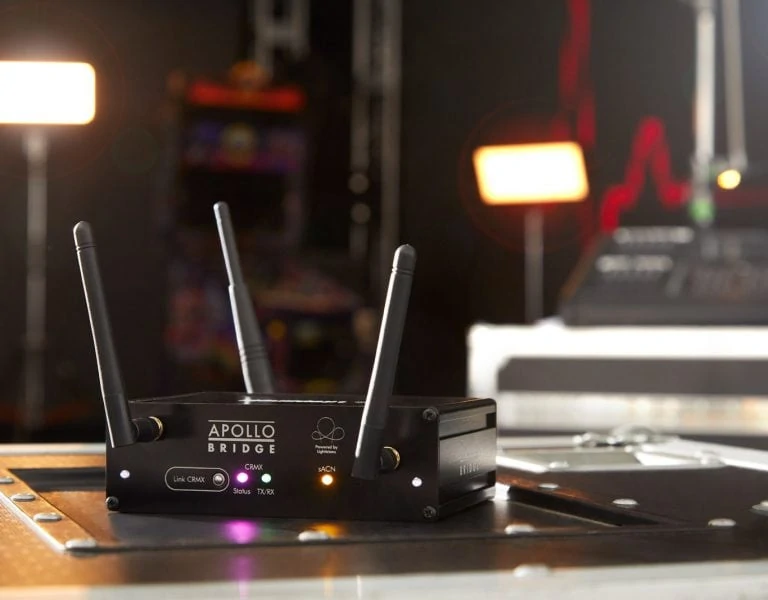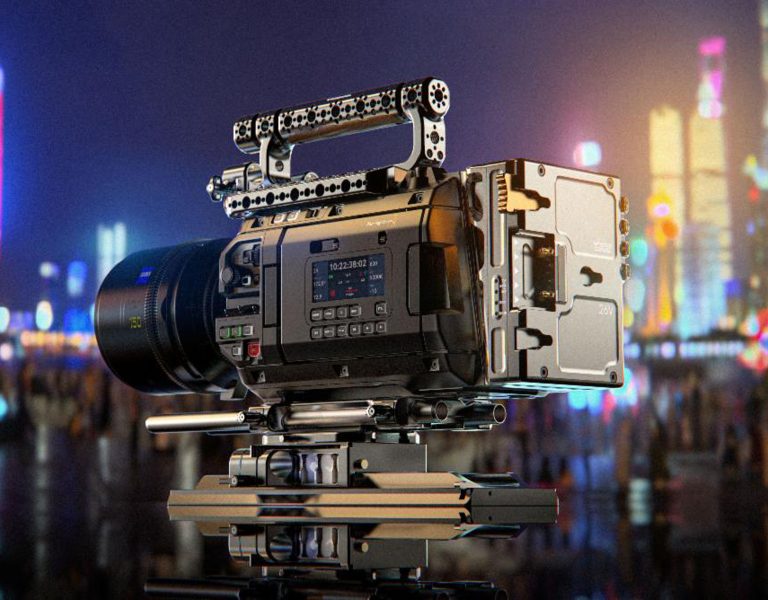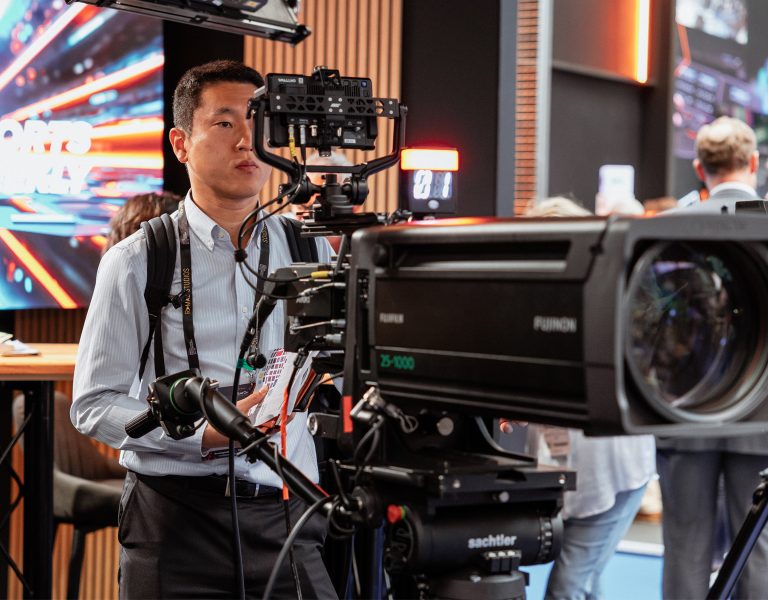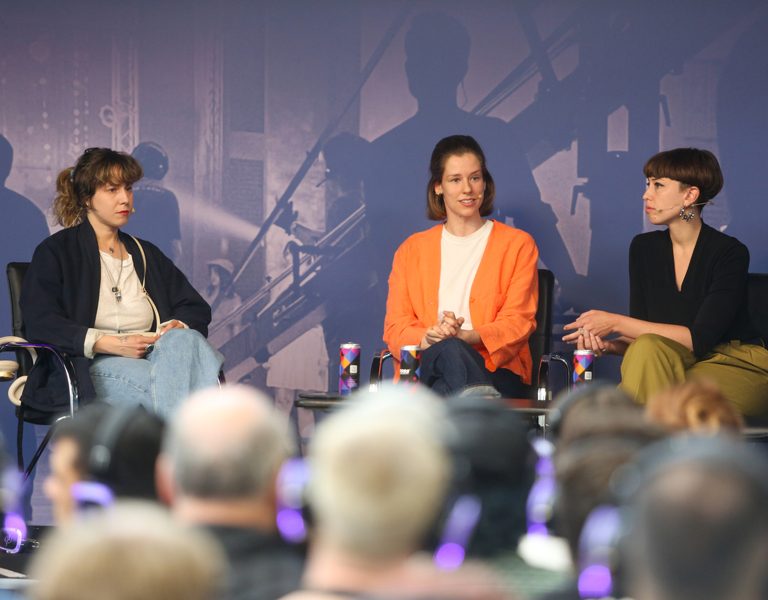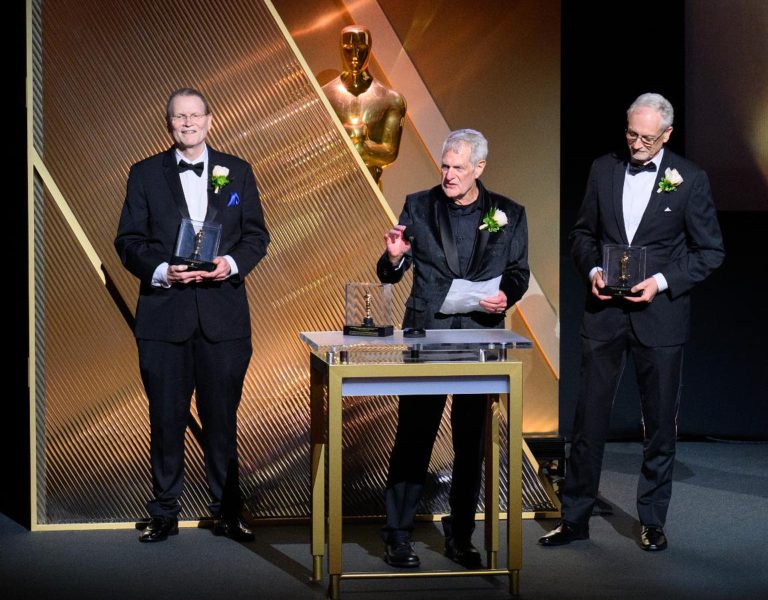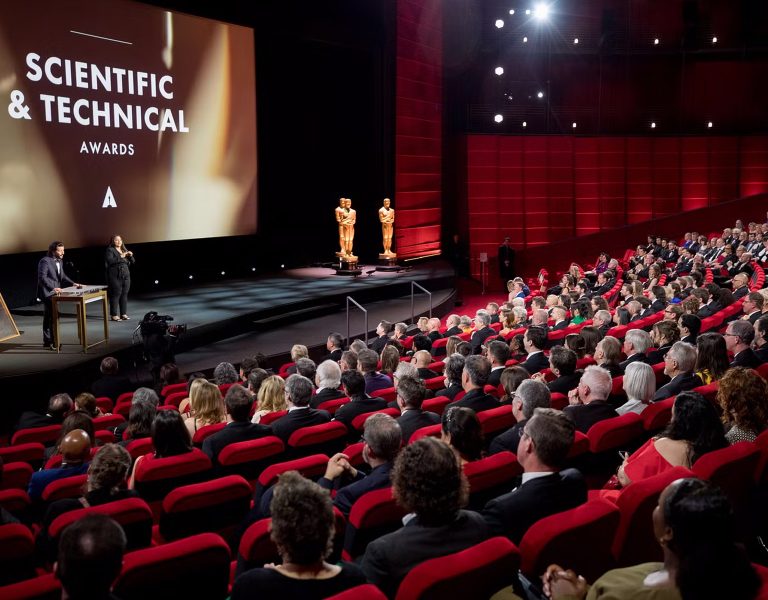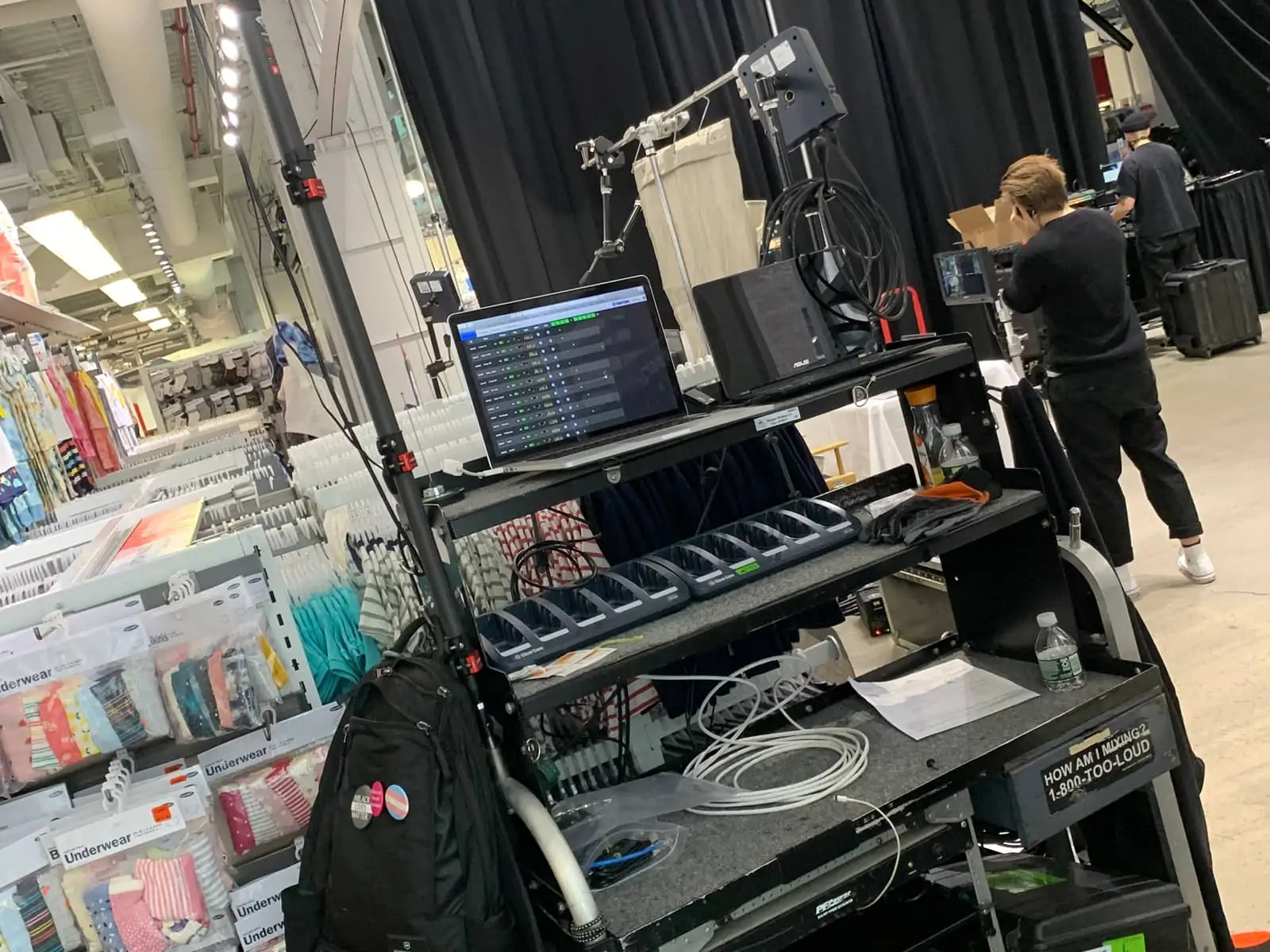
The Old Navy flagship store in midtown New York City was converted into a four-floor soundstage for a recent commercial shoot, and the production companies found a combination of Clear-Com wireless intercom technologies to be a great fit for covering the retailer’s closed set safely and efficiently.
The project required a mix of pre-recorded segments with employee interviews and a celebrity guest appearance. The talent was staged on separate floors when off-camera, allowing the onsite technical crews to maintain proper distancing while still experiencing high-quality communications among each other and talent, as well as the remote producers and directors who were in Los Angeles.
Gotham Sound & Communications was the lead production company for the shoot, with VP Peter Schneider managing operations remotely and independent sound engineer Ken Goodwin on-site. The pair chose Clear-Com’s FreeSpeak II 1.9 GHz Digital Wireless Intercom System and the Agent-IC Mobile App as the production roamed freely between each floor and even onto the busy Manhattan streets with no drops in coverage.
“The beauty of these systems is that I can remotely login and verify everything is working as it should, and also troubleshoot to understand where things might not be connecting properly,” said Schneider, who has extensive experience deploying Clear-Com systems in a wide range of configurations.
During pre-production meetings, the team met to assess key intercom requirements, determining ease of use, real-time communications and a minimal hardware footprint were the priorities.
The team conducted a trial run the day before shooting began, establishing a connection between Gotham’s headquarters in New York City, the line producer’s office and the director’s home in Los Angeles, with everyone on Agent-IC.
“Our setup facilitated full duplex communication, both on-site and with remote directors – quickly, easily and efficiently,” commented Schneider.
With everything a “go,” shooting was ready to start. On-site at the store, the FreeSpeak system linked to Clear-Com’s LQ Series of IP Interfaces and integrated with a Peplink Speed Fusion Engine Cam for cellular connection.
Goodwin allocated 13 FreeSpeak II beltpacks among the crew, placing nine transceivers throughout the four floors. He also created separate channels, one main communications channel for crew to talk with grips and electric teams who were also on walkie-talkies, and other channels for more targeted conversations.
“The job was near flawless for intercom,” said Goodwin, noting the wireless partyline systems allowed for full duplex and high-quality natural conversations plus the flexibility to assign channels as needed to support the production.
The DP, 1st AD, 2nd AD, line producer, video playback operator, production designer and Schneider had their own four channels, each of the three camera operators and 1st ACs had access to a similar set of four channels, and Goodwin and Schneider used the same set-up to establish a private tech channel.
“Everybody monitored the main channel one,” Goodwin said, “and then they could also all go to different channels to have their private conversations.”
The Clear-Com system integrated well with the use of walkie-talkies, ensuring nobody missed a cue or stage direction while always having constant two-way communications.
“The assistant directors and the Line Producer still had walkies on their belt,” he said, “and that way they didn’t have to take their headset off if somebody was trying to reach them. If the 1st Assistant or the DP needed someone to come over and change a light, they can just talk under Channel D and call somebody over without having to take their headset and potentially lose some conversation.”
The streamlined communications contributed to such an efficient production schedule, granting the crew extra time for some unplanned shooting.
“One day we wrapped about 45 minutes early, so we went out onto 34th Street to shoot B-roll,” Goodwin said. “I had only planned for coverage inside the store, so I wasn’t sure at first how it would go, but the Director was still communicating with everyone, they were calling out signals to hold traffic, running across the street in the rain. They had a great time. The Clear-Com system allowed for so much off-the-cuff creativity.”
Both Goodwin and Schneider said the use of full duplex wireless intercoms is increasing across the production industry, as more decision-makers realize the potential benefits of achieving quality, working on time and staying under budget.
“When directors, for example, hear they can have a full two-way conversation with the whole crew and be on a separate channel to whisper directions to a camera op,” Goodwin said, “that’s when people start really liking the idea of multi-channel intercom.
